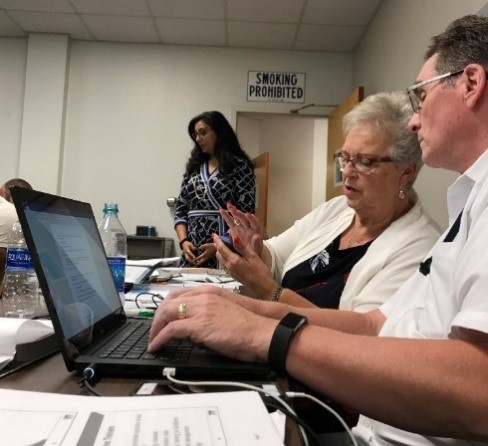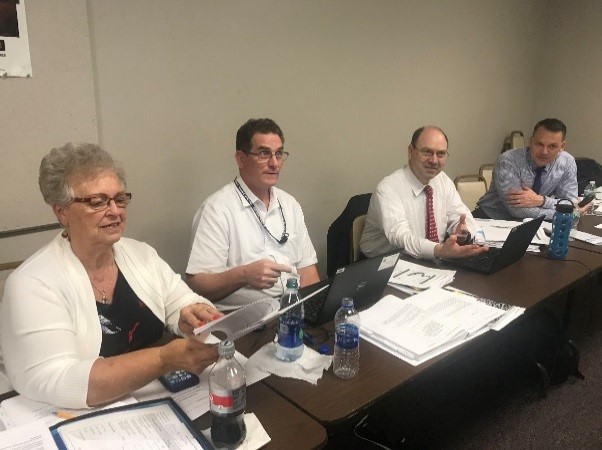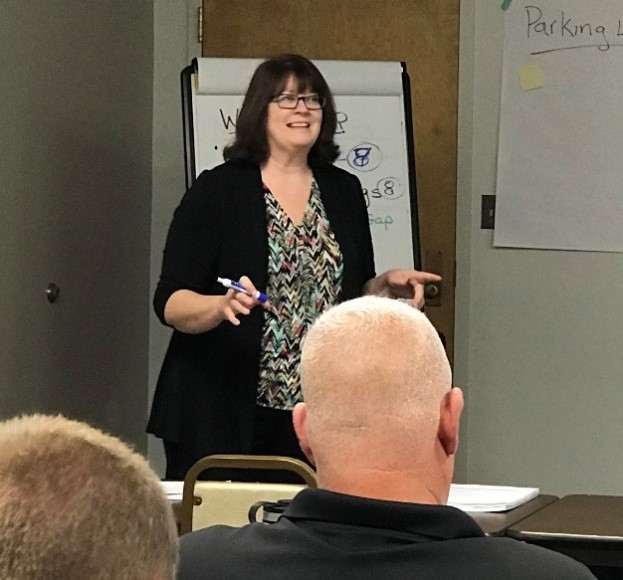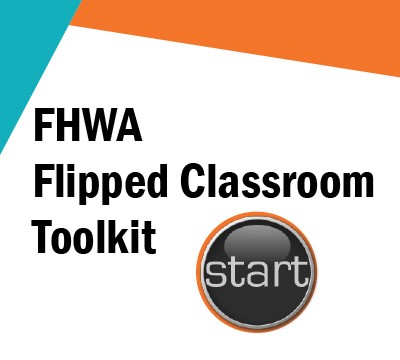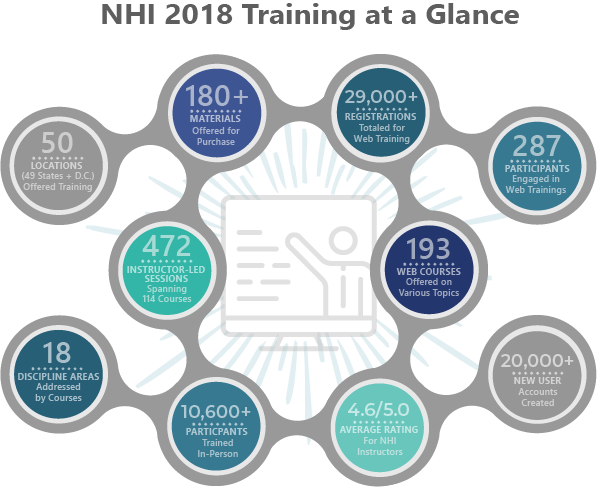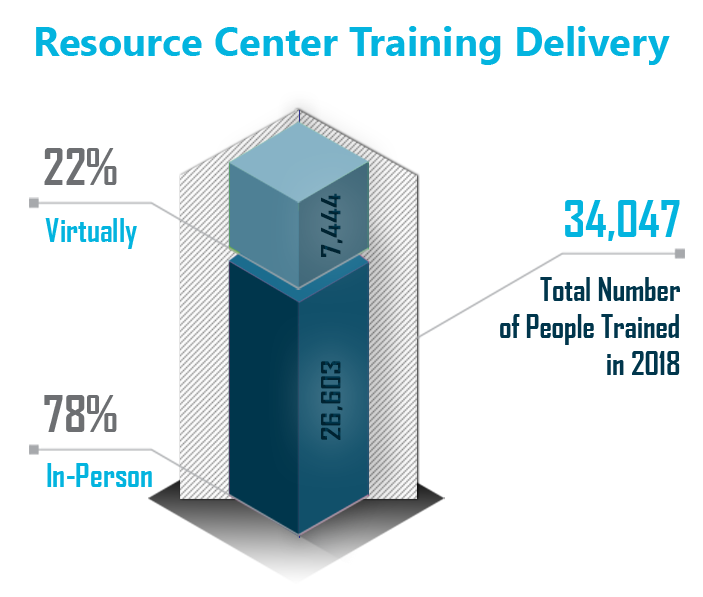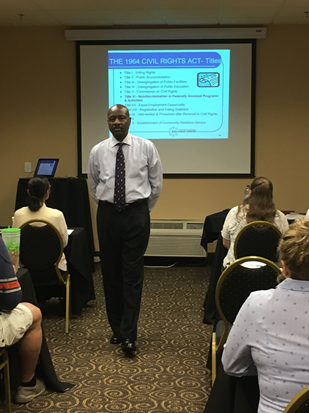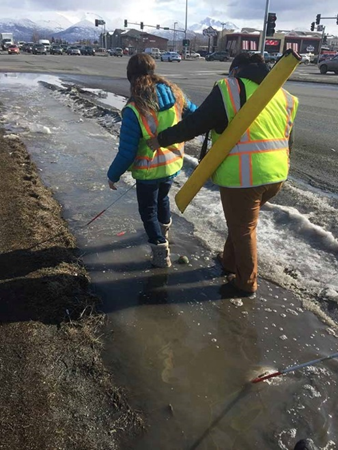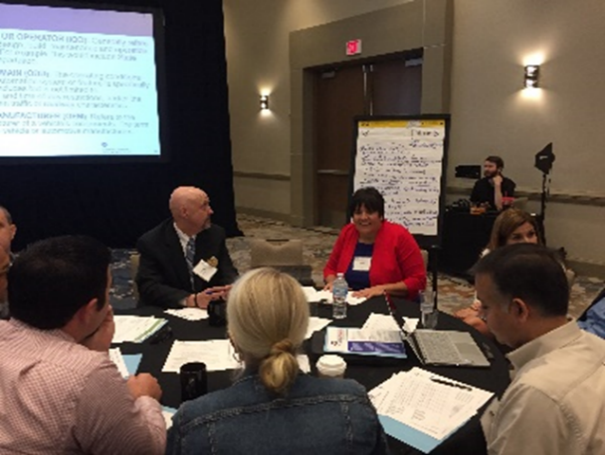Flipped Classroom Approaches Take Training to the Next Level
In 2018, OTS continued to explore and implement new and innovative ways to develop and deliver training. The “flipped classroom” is an innovative training delivery method where learners complete introductory activities on their own, before receiving virtual, or in-person coaching from an instructor. Most flipped classroom models utilize self-paced video and audio lectures as “pre-work” and devote classroom (or Web-room) time to application-based exercises, projects, and discussions. This blended-learning approach keeps instruction time more engaging and productive for participants.
NHI’s Flipped Classroom Toolkit
This year NHI launched a new resource for FHWA employees involved in learning and development: FHWA’s Flipped Classroom Toolkit.
Designed to mimic flipped classroom training pre-work, the FHWA Flipped Classroom Toolkit includes two videos, five podcasts, and a job aid. These materials highlight the real-world experiences of FHWA staff using the flipped classroom training delivery method and summarize feedback from key stakeholders involved with the 2015 Safety and Operations Learning and Development Seminar and the Construction and Project Management Discipline’s Environmental Factors in Construction and Maintenance course. The goal of FHWA’s Flipped Classroom Toolkit is to provide information that helps FHWA employees involved in learning and development decide when and how to “flip” a training.
The toolkit is featured on FHWA’s Training Community of Practice (TCoP), which provides a place for FHWA trainers and instructors to share and receive best practices and tips to elevate the quality of instruction delivered across the agency. Membership in (and access to) the TCoP is open to anyone with an FHWA email address.
Resource Center Demonstrates Benefits of Flipped Classroom Approaches
In 2018, multiple RC teams continued to develop creative training approaches to meet a variety of challenges facing transportation customers. For example, several teams deployed a “flipped classroom” approach where training participants attended an introductory training session via an instructor-led webinar, then completed multiple self-paced assignments and subsequently participated in an in-person intermediate level training session on the same topic. This allowed participants to build their knowledge over time and come prepared to fully engage in the in-person workshop. For example, the RC TPM, Asset Management and Freight (TAF) Team developed several webinar training materials focused on the “basics” of freight data and behavior based modeling, followed by an in-person workshop where more detailed topics were presented and peer practices shared.
Other RC teams implemented a completely virtual “flipped” approach where training participants were provided with read-ahead materials and assignments and then joined together in a virtual, interactive, instructor-led webinar training event at a later time. The RC Finance Services Team’s internal training series for FHWA financial managers has followed this approach with extremely positive feedback. Annually, RC Finance Services sponsors a Financial Management Boot Camp to support discipline advancement. The team also provides web conference training and maintains a toolkit eBook for the discipline on FHWA’s Financial Integrity Reporting and Evaluation (FIRE) Program.
